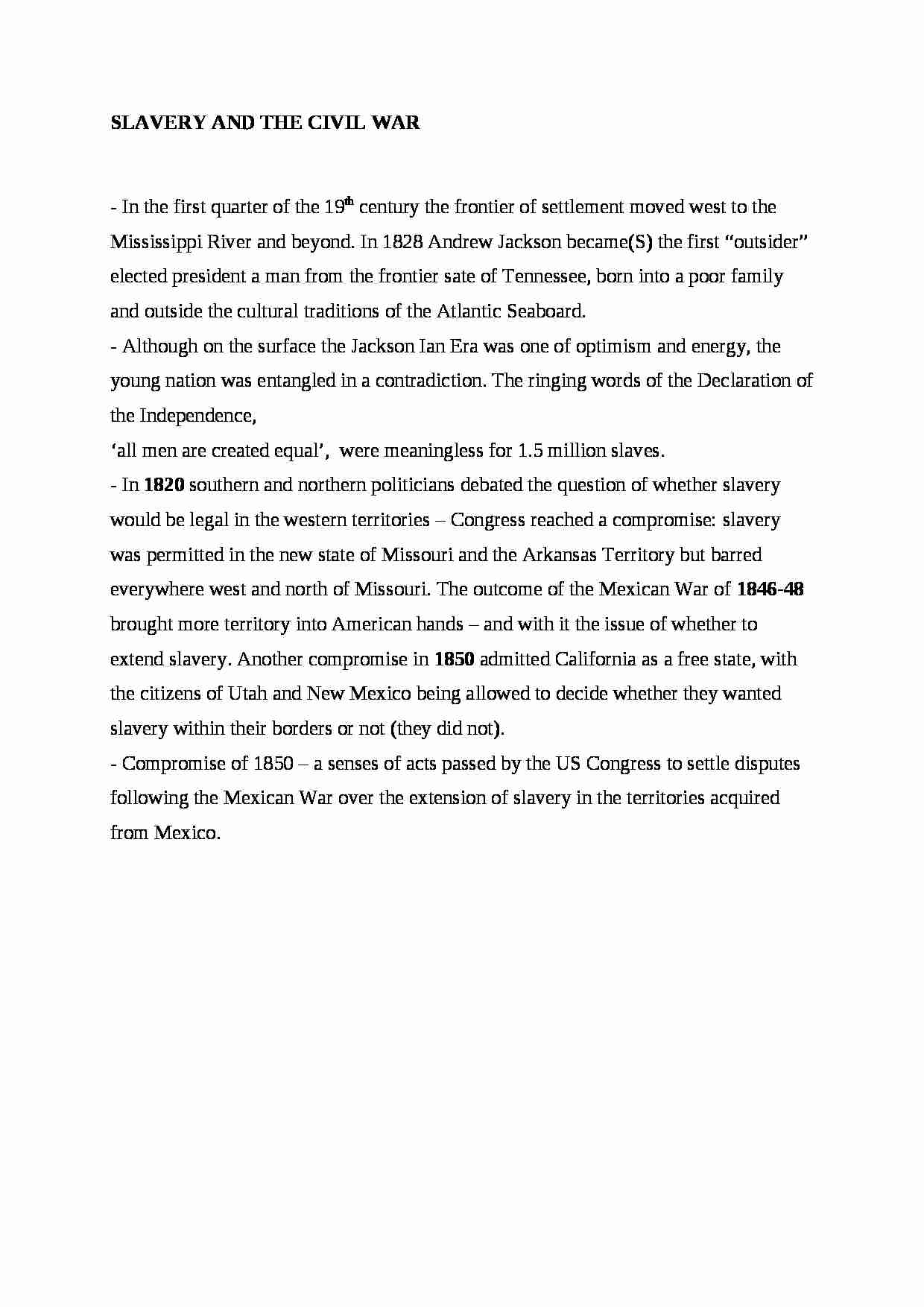
SLAVERY AND THE CIVIL WAR
- In the first quarter of the 19th century the frontier of settlement moved west to the Mississippi River and beyond. In 1828 Andrew Jackson became(S) the first “outsider” elected president a man from the frontier sate of Tennessee, born into a poor family and outside the cultural traditions of the Atlantic Seaboard.
- Although on the surface the Jackson Ian Era was one of optimism and energy, the young nation was entangled in a contradiction. The ringing words of the Declaration of the Independence, `all men are created equal', were meaningless for 1.5 million slaves. - In 1820 southern and northern politicians debated the question of whether slavery would be legal in the western territories - Congress reached a compromise: slavery was permitted in the new state of Missouri and the Arkansas Territory but barred everywhere west and north of Missouri. The outcome of the Mexican War of 1846-48 brought more territory into American hands - and with it the issue of whether to extend slavery. Another compromise in 1850 admitted California as a free state, with the citizens of Utah and New Mexico being allowed to decide whether they wanted slavery within their borders or not (they did not). - Compromise of 1850 - a senses of acts passed by the US Congress to settle disputes following the Mexican War over the extension of slavery in the territories acquired from Mexico.
... zobacz całą notatkę



Komentarze użytkowników (0)